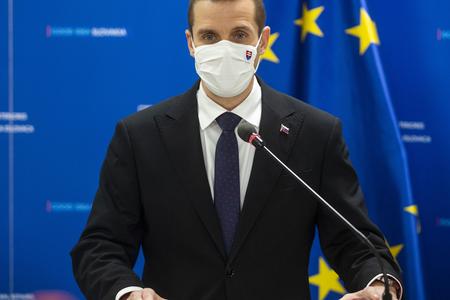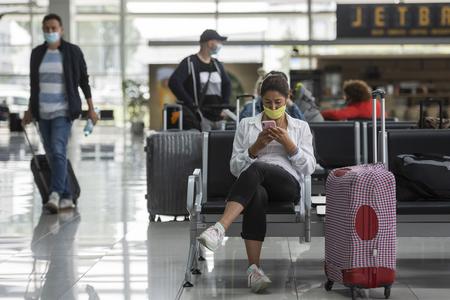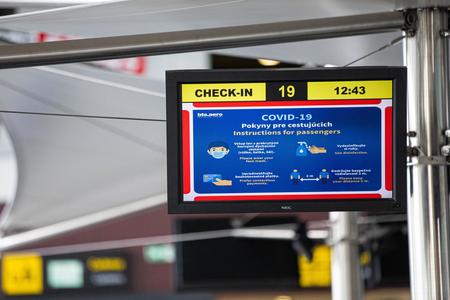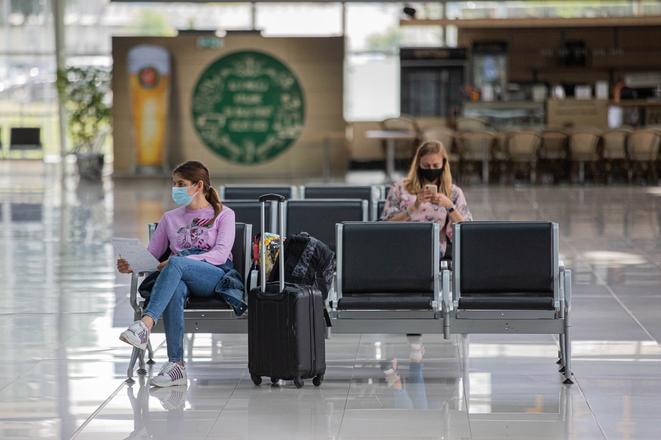Summer travelling may be easier thanks to what has been dubbed the EU Covid passport. Member states will not be obliged to accept vaccines that have not been registered in the EU, though.
The Digital Green Certificate that the European Commission presented on March 18 should facilitate safe and free movement during the coronavirus pandemic within the EU. It will serve as proof that the holder has been vaccinated against Covid-19, has received a negative test result or has recovered from the disease.

It will be valid around the EU and in Iceland, Liechtenstein, Norway and Switzerland.
The certificate still needs to be approved by the European Parliament, and then the individual member states.
“We will take this Covid passport with us when travelling this year, like we take our ID or passport,” said MEP Michal Wiezik, as quoted by the Sme daily.
It is possible that the certificates will be required until the World Health Organisation says the pandemic is over.
How will the certificates look?
The certificates will be issued by the member states in digital format.

They will contain an interoperable, machine-readable QR code containing necessary key data as well as a digital signature.
There will be necessary key information such as name, date of birth, the issuing member state and the unique identifier of the certificate.
It should then contain the following information:
for a vaccination certificate: vaccine product and manufacturer, number of doses, date of vaccination;
for a test certificate: type of test, date and time of test, test centre and result;
for a recovery certificate: date of positive test result, issuer of certificate, date of issuance, validity date.
People will be able to use the digital form in their smartphones, or ask for a paper version with the same QR code.
To improve cross-border acceptance, the information on the certificate should be stated in the languages of the issuing member state and in English.

The EC will build a gateway, through which all certificate signatures can be verified across the EU. The personal data of the certificate holder does not pass through the gateway, as this is not necessary to verify the digital signature.
The EC will also provide open source reference implementations to support member states in developing software the authorities can use to scan and check the QR codes.
Also unregistered vaccines
The member states are expected to accept the certificates, but they will still have the right to decide who can enter their territory.
For example, if the situation in a neighbouring country is bad, states can establish additional conditions for entry, like mandatory self-isolation or the validity of a PCR test. They can also decide on preventing people of certain countries from entering, Sme reported.

The certificates should simplify the current system. If countries decide to change entry conditions, they will be required to notify the EC at least three days prior and explain their decision.
Member states should issue vaccination certificates regardless of the type of Covid-19 vaccine that the holder of the certificate has received. Member states will be free to decide whether they will accept the certificates of vaccines that have not been registered by the European Medicines Agency (EMA).
It is not clear whether the certificates will be accepted outside the EU. The EC is negotiating with both the World Health Organisation and the International Civil Aviation Organisation (ICAO) to use them worldwide, said EC Vice President for Interinstitutional Relations and Foresight, Maroš Šefčovič, as reported by Sme.
More on the coronavirus development in Slovakia:
Tightened border regime: State orders self-isolation and testing for all incomers as of February 17
Do I have the new coronavirus? How to proceed if you have a suspicion
I encountered a person who is COVID-19 positive. What do I do next? (FAQ)
When will I get my COVID vaccine? FAQs about vaccination in Slovakia



 Illustrative stock photo (source: Sme - Marko Erd)
Illustrative stock photo (source: Sme - Marko Erd)